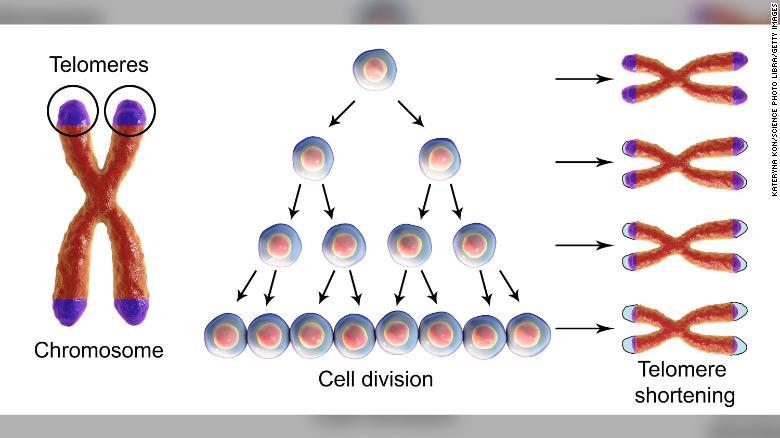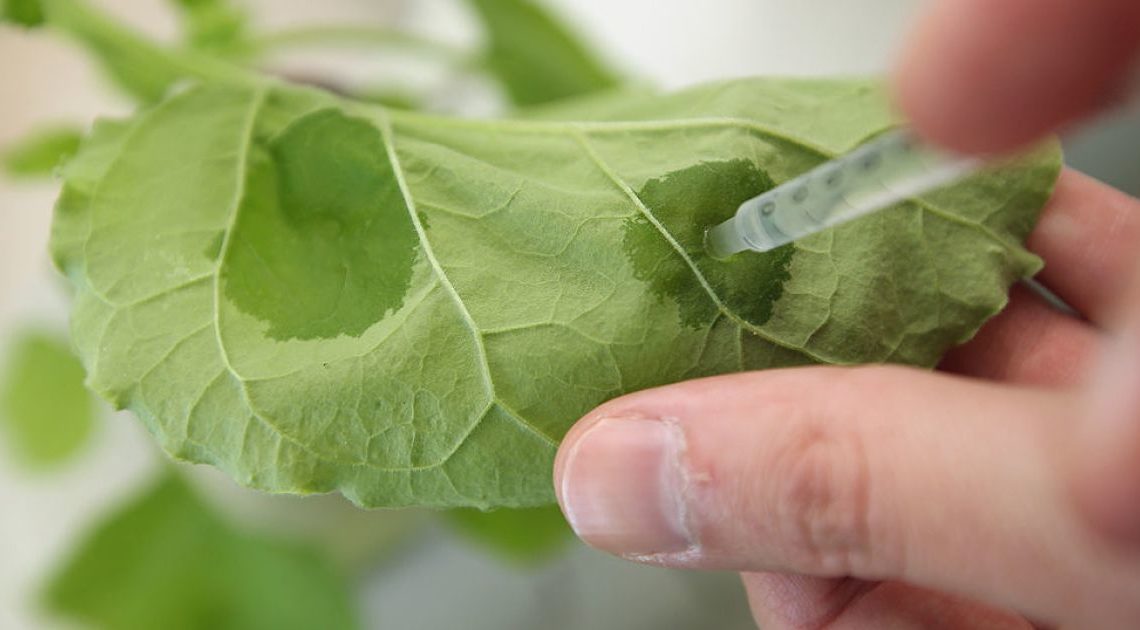Plants’ DNA may lead to slowing ageing process in humans 28/11/2019 – Posted in: Daily News
SLOWING HUMAN AGEING PROCESS
Science has identified in the plant kingdom the “missing link” of cellular immortality between human and single-celled animals, according to a new study led by scientists from Arizona State University and Texas A&M University.
This is the first time that researchers have identified the detailed structure of the telomerase component from plants. Telomerase is the enzyme that creates the DNA of telomeres, the compound structures located at the tips of our chromosomes. Telomeres protect our cells from aging as they multiply.
Telomeres
- Telomeres protect the ends of cells from shortening as they multiply, thus extending the life of the cell.
- Most of the cells in our body have very low levels of telomerase, and thus age as they divide. Aging cells equal an aging body, with cells no longer functioning normally.

Telomeres – Nuclear division Image: CNN
However, when the cell’s ends are protected by telomeres, only a piece of the telomere, or cap, is lost as the cell divides, and the important DNA is left undamaged. Considering a typical cell divides about 50 to 70 times, having no protective cap could lead to chromosome instability or cells that stop dividing.
In humans, for example, egg, sperm and stem cell chromosomes contain high levels of telomerase, and so can continue to divide over and over and avoid rapid aging.
Telomeres do not have eternal life. Each time a cell replicates, about 20 base pairs are lost from the telomere.
| Cancer cells contain high levels of telomerase, allowing them to continue replicating themselves until they form tumors. Switching off telomerase activity in cancer cells would shorten their telomeres, whittling them down to a nub called a “critical length,” which then triggers programmed cell death. |
Important Information
Elizabeth Blackburn (American-Australian researcher) won the 2009 Nobel Prize in Physiology or Medicine – along with Johns Hopkins’ Carol Greider and Harvard’s Jack Szostak – for their discoveries on telomeres and telomerase.
Source: CNN
READ MORE DAILY NEWS
- The Dadra and Nagar Haveli and Daman and Diu (Merger of Union Territories) Bill, 2019
- 70th Constitution Day
- Transgender Persons (Protection of Rights) Bill, 2019
- National Institute of Design (Amendment) Bill, 2019
- Rule 12 of the government of India (Transaction of Business) Rules, 1961
- Wooden Breast Syndrome
- Golden Rice
- General Security of Military Information Agreement (GSOMIA)
You are on the Best Online IAS preparation platform. You are learning under experts.
We are present on Facebook- Diligent IAS, LinkedIn- Diligent IAS, YouTube- Diligent IAS, Instagram- Diligent IAS. Get in touch with us.

